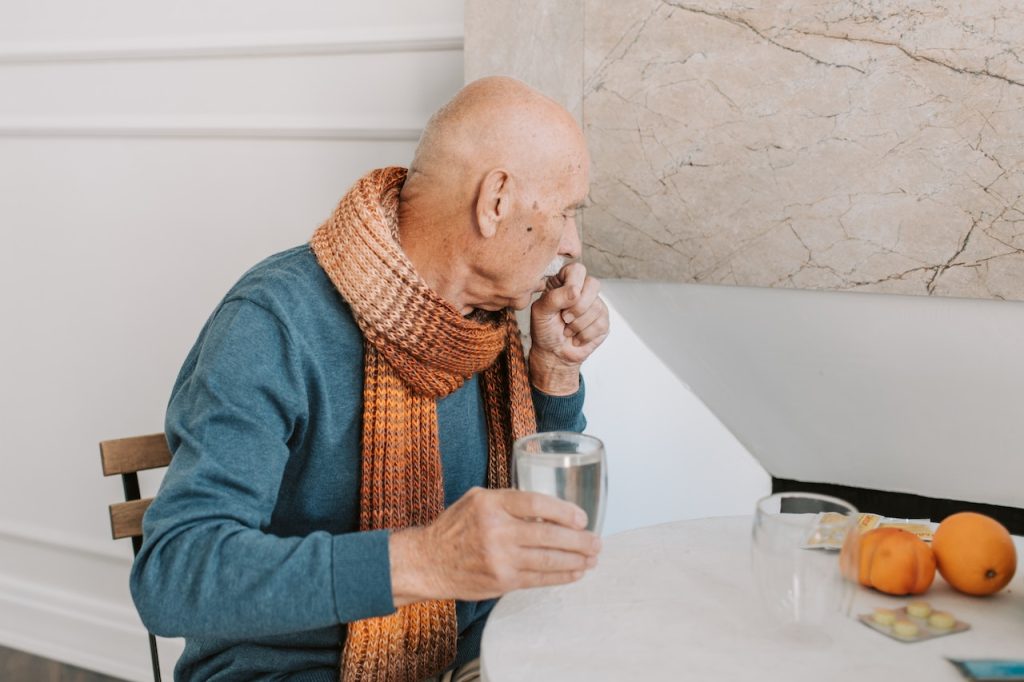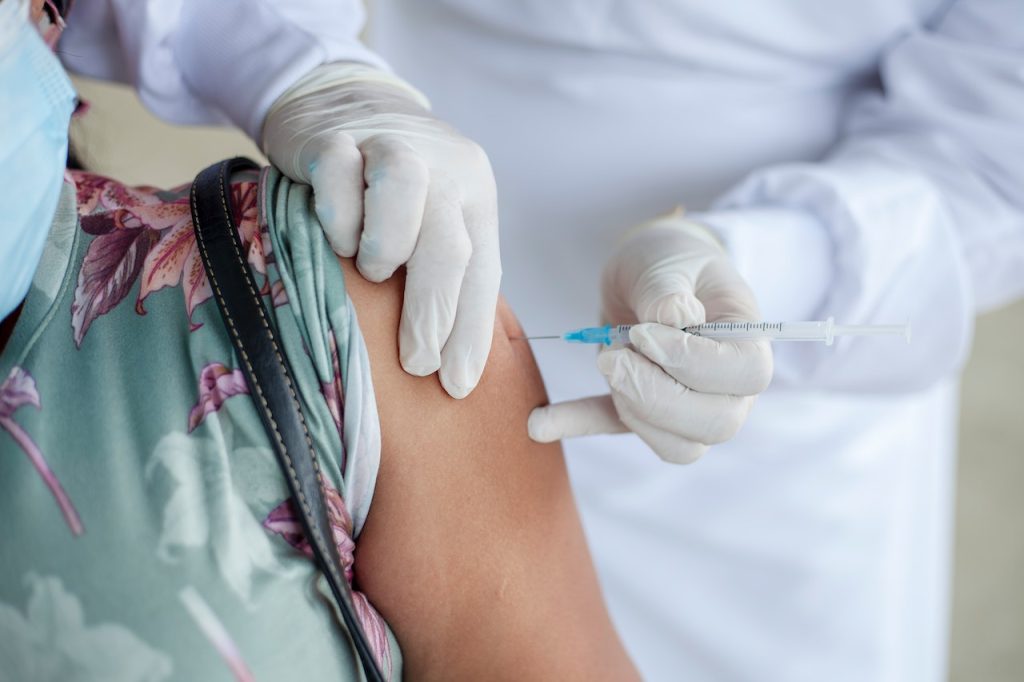When you become ill, your body gets to work trying to protect you. The immune system serves as a defense against harmful foreign invaders in your body. You are born with an active and innate immune system, which you receive from your mother. As you grow, your body gets exposed to different infections and acquires immunity to fight the infections. There are two types of this immunity: natural immunity and vaccine-induced immunity.
Note: There’s technically a third kind of immunity called passive immunity. This is when a mother passes antibodies to her unborn baby. A vaccinated woman who is nursing might also pass on antibodies to her baby through breastfeeding.
Let’s explore each!
What is Natural Immunity?
Natural immunity is the immunity your body develops in response to a disease. When you get sick or infected, the immune system produces antibodies to fight the illness and retains a “memory” of it. These antibodies will recognize the infection when it attacks your body in the future and fights them off.

How Long Does Natural Immunity Last?
There’s no solid answer to this. Natural immunity to disease can wane over time and stop working as soon as the virus mutates. There is no specific period that natural immunity lasts since it depends on the disease.
For instance, if you’ve had measles once before, you’re very unlikely to catch it again. However, the situation is different with COVID-19. Natural immunity against COVID-19 can last for approximately two to three months. According to a CDC study, the majority of infected people lose their COVID-19 antibodies after approximately 60 days.
What are the Risks to Natural Immunity?
You can develop natural immunity after recovering from an infection, which sounds nice because it’s like letting nature run its course. However, this type of immunity may not be foolproof. There have been many cases of unvaccinated people becoming reinfected with COVID-19 after healing from the virus, proving that you can indeed get COVID-19 more than once.
In fact, a new CDC study shows that unvaccinated people are twice as likely to be reinfected with COVID-19 compared to fully vaccinated ones. Another study indicates that some people who get COVID-19 did not develop the antibodies to fight the disease in the first place.
There is also a price paid for natural immunity. Since you need to get sick for natural immunity to develop, you run the risk of suffering from more severe complications after contracting a contagious disease. For instance, the flu can escalate into pneumonia, which can be severe and even deadly. Getting the seasonal flu shot lowers this risk.

What is Vaccine-Induced Immunity?
On the other hand, we have vaccine-induced immunity. Vaccines are the best way to protect yourself against illnesses. They train your body to fight infections without having to get sick. Most vaccines contain a weakened or inactivated virus. When the weakened cells are introduced into your body, the immune system responds as if you were sick and develops antibodies to fight the foreign invaders. Your immune system will then develop the memory to protect you against the specific disease if you later come into contact with the actual virus.
Understandably, some people worry about vaccine side effects. However, research has told us time and time again that side effects and bad reactions are incredibly rare. Most often, if an individual experiences anything, it’s pain at the site of the injection. This usually goes away within a day or so.
How Long Does Vaccine-Induced Immunity Last?
Different vaccines provide varying degrees of protection. The protection period depends on the type of vaccination you received. Some vaccines provide temporary immunity, and you may need booster shots later on, while others provide lifelong immunity.
For instance, the MMR vaccine is very effective, and people who receive this vaccination are usually considered to be protected for life against measles, mumps, and rubella. For illnesses like COVID-19 or influenza, however, the viruses continue to mutate, so your immunity from vaccines will wane over time. Hence, the vaccines won’t offer lifelong immunity. (This is why the flu shot changes each year. It reflects the most current strains.) To be fully protected, you must go for a booster or annual shots.

Why are Vaccines the Best Way to Encourage Immunity?
Vaccines are the most effective way of boosting your immunity. They protect without you paying a higher price — unlike natural immunity, which requires you to get sick first. The weakened cells introduced in your body during vaccination trigger your immune response.
You will also get additional protection against reinfection from diseases. Getting vaccinated after a COVID-19 infection reduces your chances of getting reinfected with the disease later on. The same goes for the flu shot. And even if you do become ill, you’re likelier to be sick for a shorter period of time and with more mild symptoms.
Is Herd Immunity Better Than Vaccines?
Herd immunity occurs when enough people in a community are immune to a disease. If the majority are immune, then the community as a whole should generally be safe. Herd immunity can be achieved either through vaccines or infection/recovery.
During the COVID-19 pandemic, some people pushed for letting herd immunity run its course without the use of vaccines. However, this approach means that more people need to become sick and potentially die. Furthermore, waiting for enough people to recover from a specific disease endangers the lives of vulnerable people in society, like children, the elderly, pregnant women, and immunocompromised individuals. In addition, achieving herd immunity takes a lot longer than most people realize.
Vaccines are the most effective way to protect yourself and your loved ones from contracting diseases. Period.
When it comes to fighting disease, as always, I encourage you to follow the data, not dogma. Vaccines are thoroughly tested, FDA-approved, and constantly monitored for side effects. Thanks to science, we know that vaccination is the best way to keep ourselves and our communities safe.













